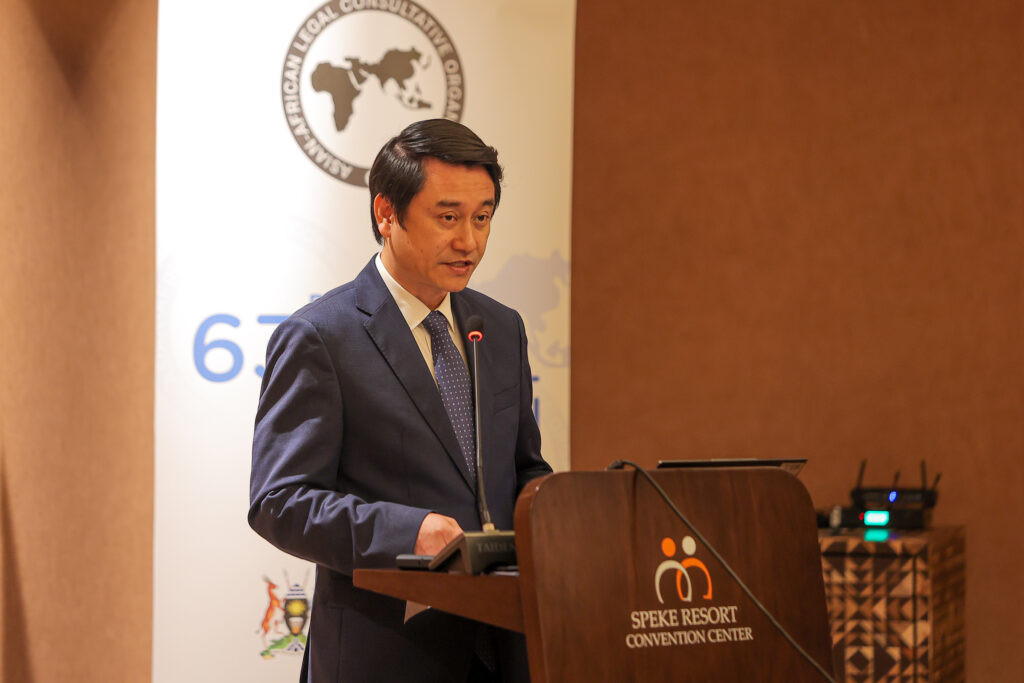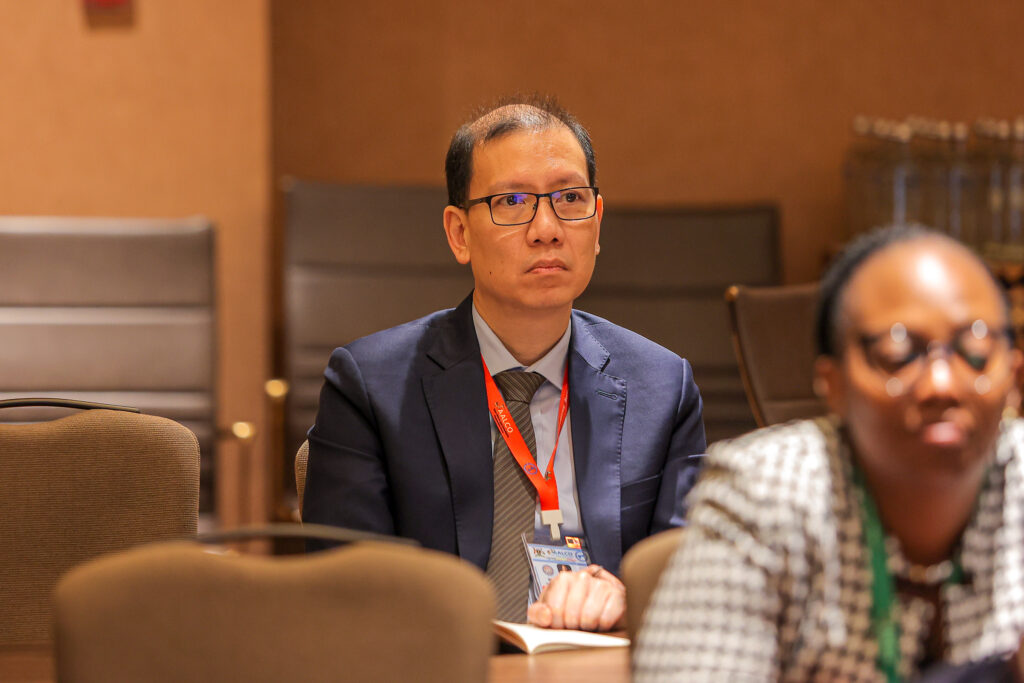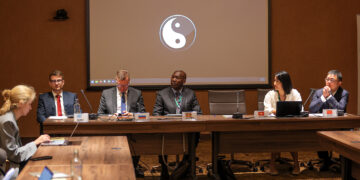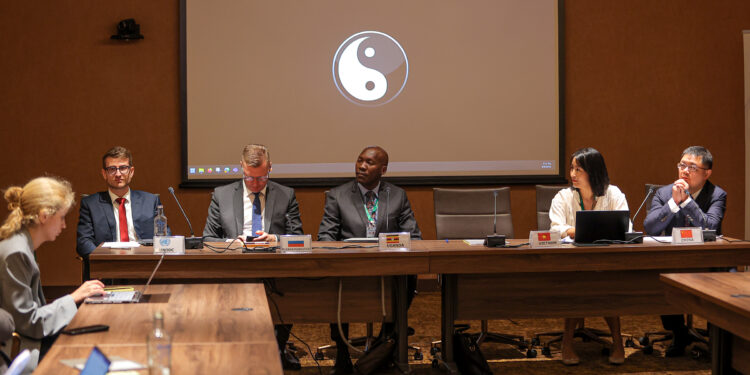Munyonyo – Senior diplomats and legal experts gathered at the 63rd Annual Session of the Asian-African Legal Consultative Organisation (AALCO) at Speke Resort, Munyonyo in Kampala for the high-level event “The Road to Hanoi – Opening for Signature of the United Nations Convention Against Cybercrime.”
The meeting set the stage for the official signing of the world’s first global cybercrime treaty, scheduled for October 25–26, 2025, in Hanoi, Vietnam.
Speaking during a special session held in Bunyonyi Hall, Vietnam’s Vice Minister of Foreign Affairs, Lê Anh Tuấn, said the Convention marks a historic turning point in the global fight against cybercrime.
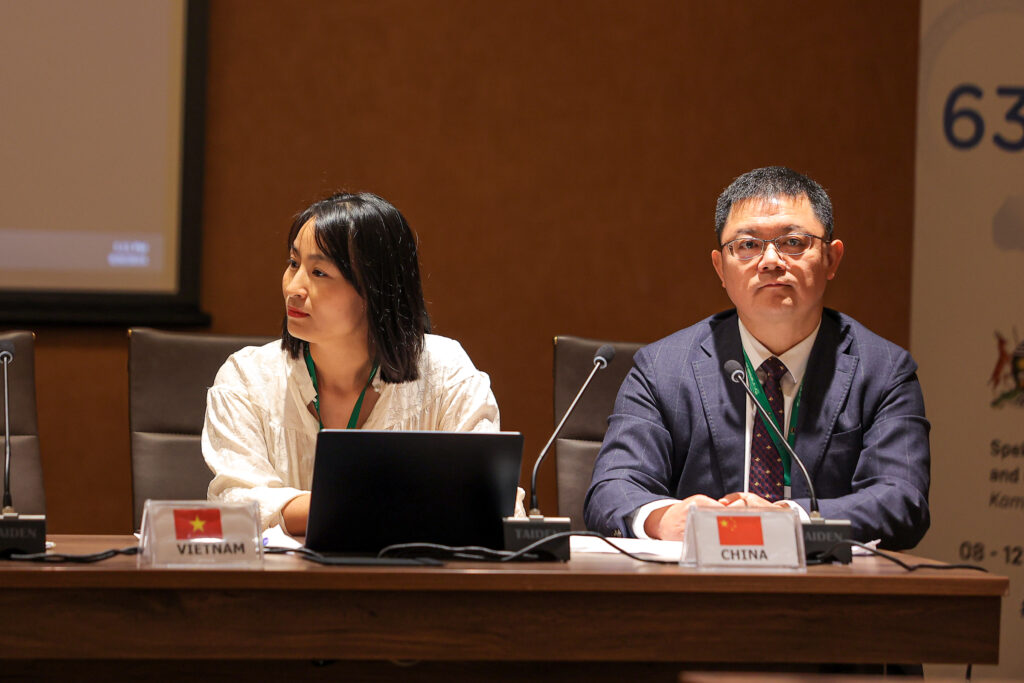
“The Road to Hanoi is a road of solidarity,” Lê declared. “Each signature in Hanoi will not only bring the Convention closer to entry into force but also send a strong message that the international community stands united against the threat of cybercrime.”
Adopted by the UN General Assembly on December 24, 2024, the Convention creates the first comprehensive legal framework to combat cybercrime, promote information-sharing, and strengthen law enforcement cooperation worldwide.
A lifeline for developing countries
The treaty is particularly significant for the Global South, offering technical assistance, capacity-building, and legal support to countries with limited resources to fight cybercrime.
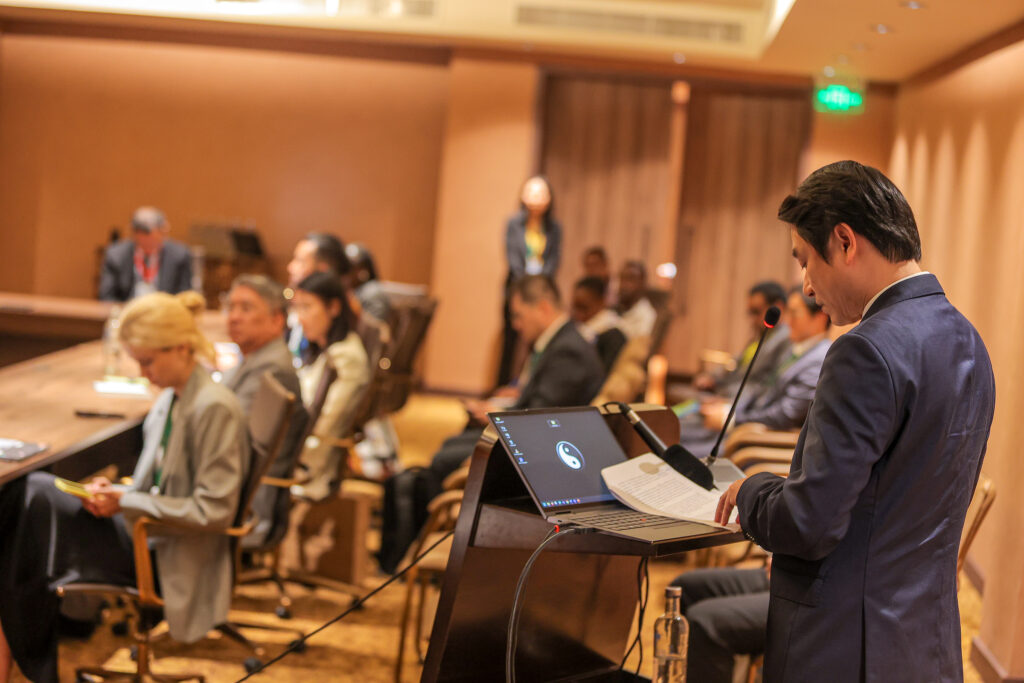
“For developing countries, participation in the Convention will mean not only receiving support and cooperation but also contributing to a global consensus—that cyberspace must be governed by law, trust, and cooperation,” Lê said.
She confirmed that nearly 60 countries have already pledged to attend the October signing ceremony at the ministerial level or higher. The event will be presided over by Vietnam’s State President and attended by UN Secretary-General António Guterres.
“Let us seize this opportunity,” Lê urged, “to reaffirm our commitment to international cooperation and ensure that no country is left behind in the digital age.”
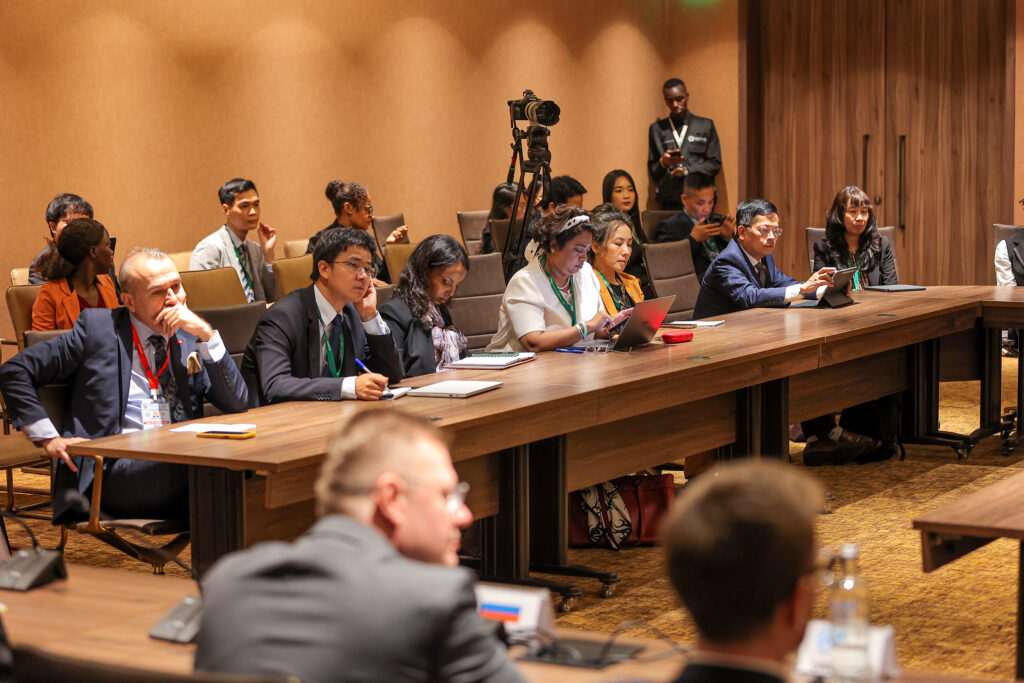
Historic journey to consensus
The Convention’s road to adoption was long and often divisive. Mr. Huang Zhixiong, Professor at Wuhan University, noted that the treaty ended two decades of debate marked by an East-West divide.
“Western countries promoted the 2001 Budapest Convention as a global model,” Huang explained. “But many nations in Asia, Africa, and Latin America felt excluded from its drafting and demanded a truly universal treaty under UN auspices. The 2024 Convention is the result of that struggle.”
Huang warned, however, that some Western countries might sign the treaty but delay ratification, citing concerns over sovereignty and enforcement.

Russia and China’s leadership role
Ernest Chernikhin, Deputy Director at Russia’s Ministry of Foreign Affairs, highlighted the leadership of Russia and China in pushing the treaty through the UN system.
“From the very beginning, there was no monopoly in the information space,” Chernikhin said. “All states must have equal access to the tools and technologies to counter cybercrime. That is why we fought for a UN-led process rather than a Western-dominated one.”
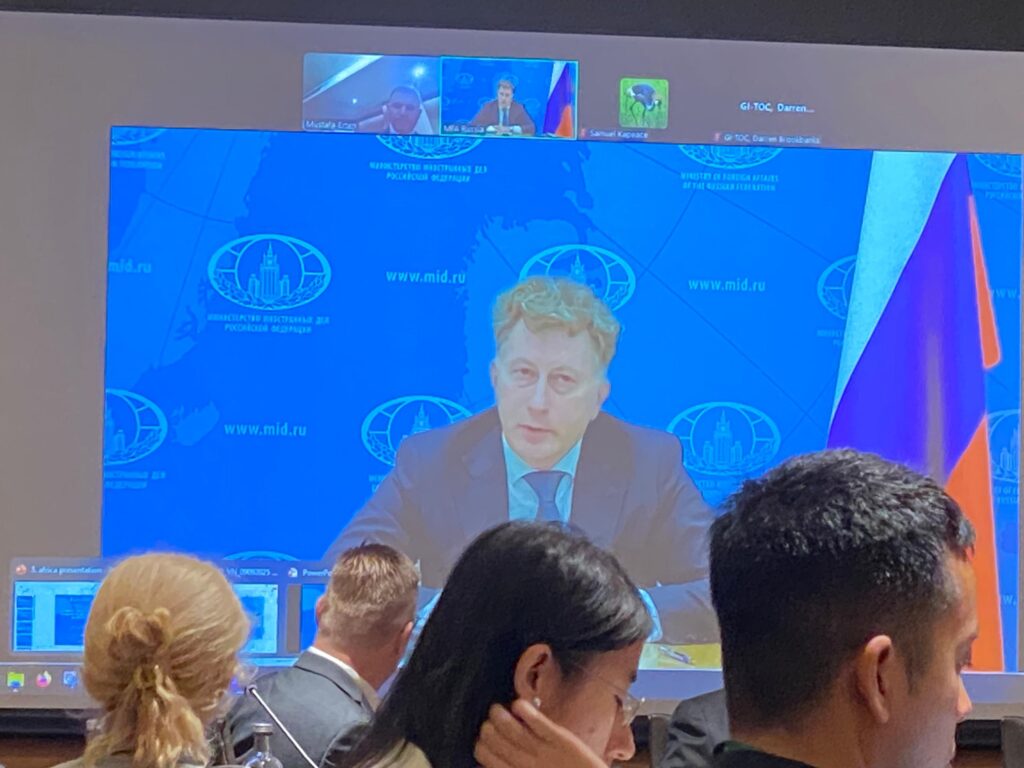
Chernikhin confirmed that Russia will send a high-level delegation to Hanoi, with its Prosecutor General expected to sign on behalf of Moscow.
Comprehensive scope and safeguards
According to Markus Stemeseder, Associate Crime Prevention Officer at the United Nations Office on Drugs and Crime (UNODC), the Convention criminalises 11 types of cybercrime, ranging from hacking and fraud to online child exploitation and cyber-enabled terrorism.
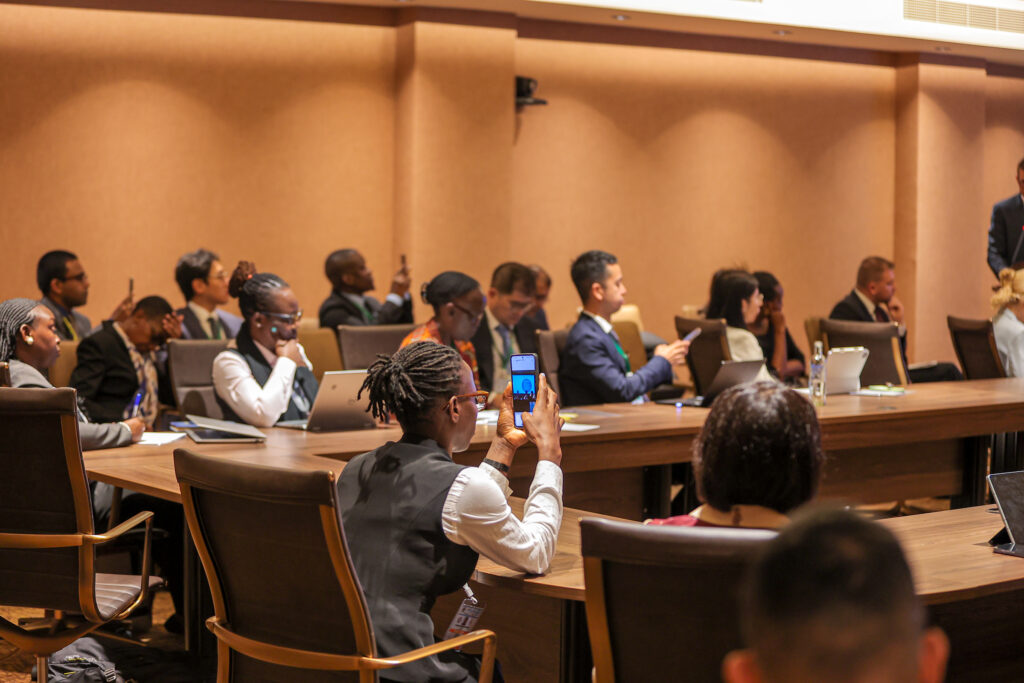
“It also establishes global mechanisms for evidence-sharing, joint investigations, and capacity-building while safeguarding human rights and national sovereignty,” Stemeseder said.
The treaty includes provisions for data preservation, real-time information sharing, and the creation of a 24/7 contact network for cybercrime investigations.
Road to Hanoi
The October signing ceremony in Hanoi will feature high-level plenaries, ministerial roundtables, and side events involving governments, civil society, and technology experts. A gala dinner and bilateral meetings will also provide opportunities for diplomatic engagement.
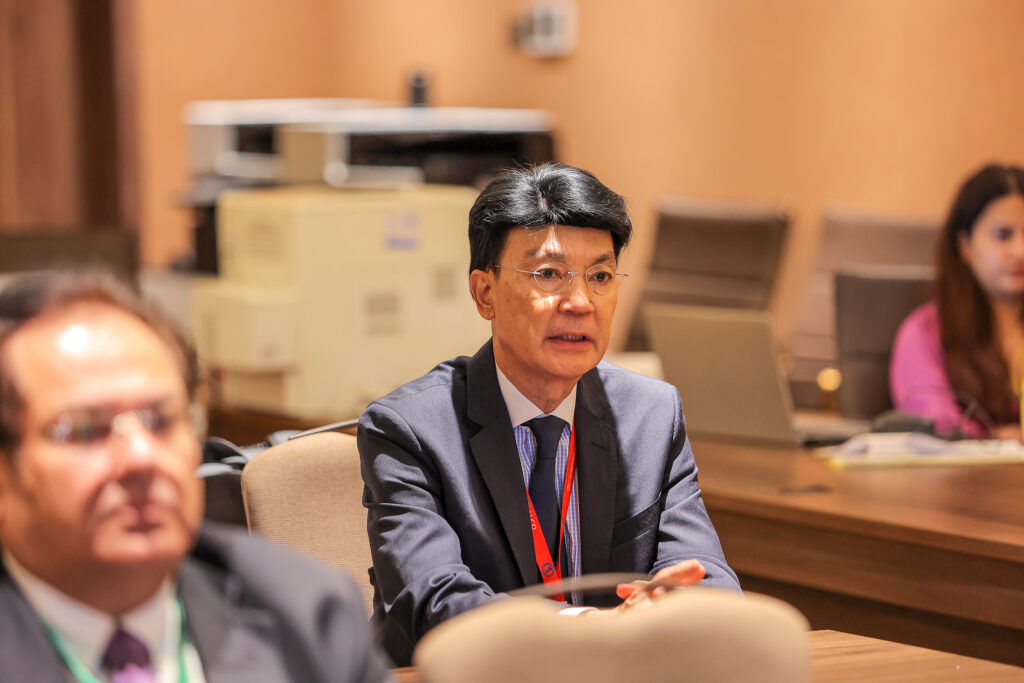
Vietnam’s Deputy Foreign Minister Ha Kim Ngoc called the event “a profound responsibility” for the host nation. “Hanoi, the City of Peace, will witness history as nations come together to take a decisive step towards a safer, fairer, and rule-based digital future,” he said.
Mr. Richard Adrole, Assistant Commissioner at the Ministry of Justice, represented Uganda. With the world facing rising cyber threats, the Hanoi signing ceremony is expected to usher in a new era of global collaboration against one of the 21st century’s most urgent security challenges.
